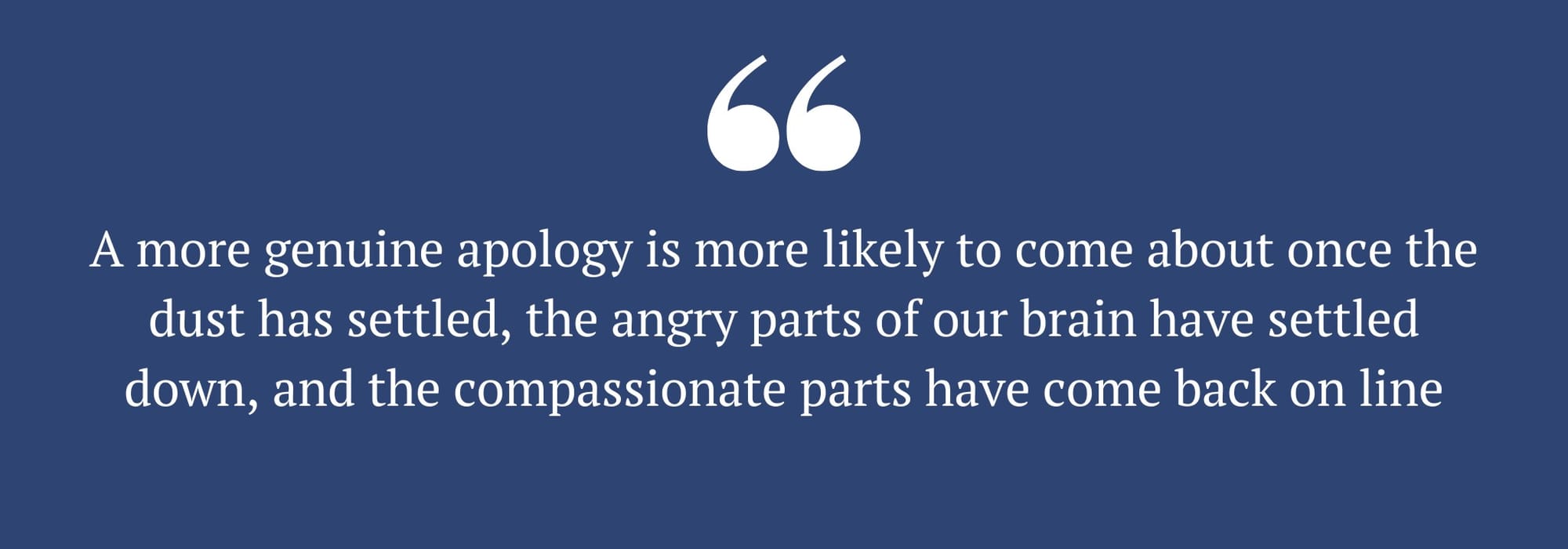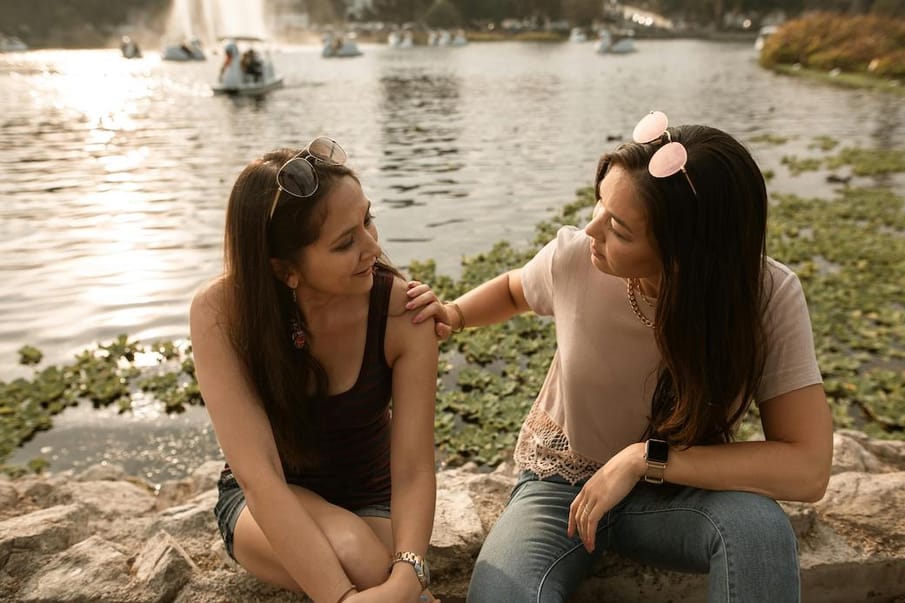Are you an automatic apologiser?
My youngest child can experience an impressively dramatic range of emotions in just seconds. I can see from a distance when the sun is going to be blotted out, and a storm is going to hit.
One time, another child grabbed her Velcro tags from her waist in a rugby training session. From the sideline, I saw her throw her head back and open her mouth before the sound of a scream – born from frustration, anger, and incomprehension combined – hit my ears. I ran onto the pitch and grabbed my now rigid four-year-old, before heading over to mumble some words of apology to the head coach. My tea was splashed over my (thankfully) waterproof coat, and my smallest was tucked under my arm (and still screaming).
That evening, I sat wondering why I had felt the need to apologise. She was simply being a child – one who hadn’t understood the rules of the game, and had therefore felt very aggrieved when her lovely yellow tags were snatched away. The coach said that there was no need to apologise as I stuttered before him, and he was right. The apology was born not from necessity, but from my embarrassment.
My need to apologise at that moment may have said more about my state of mind than my daughter’s. Dr Marianne Trent is a clinical psychologist and author of The Grief Collective. She explains: “We may peacefully accept noise or more wilful behaviour from our own children when we are alone with them. However, that same behaviour can feel like a different kettle of fish entirely when other people are privy to it. Often this might be because we experience shame and embarrassment, or we fear the judgement of others.”
Dr Trent also points out that I was probably not in the best frame of mind, as I was also dealing with a cold – and understandably grumpy – son, and a hyperactive spaniel. Circumstance definitely impacts mood and, she argues, tolerance.
“When we are out and about, we might also be juggling different activities, such as managing road safety, processing the noise of other people, and planning our next action. This means that our window of tolerance and capacity might also be reduced.”
In this heightened state, we are more likely to opt for appeasement as a quick solution, even when it’s not demanded or necessary. She adds, however, that an apology issued in this state is far less likely to be genuine, and you actually may not even remember making it once you’ve calmed down.
My apology was definitely not heartfelt, but a knee jerk reaction to feeling embarrassed. It was also absolutely the wrong message to send my child, says chartered psychologist, Catherine Hallissey. My attention should have been on my child, comforting her and not making her feel, by my apology, that she had done something wrong. I am grateful now that my daughter was crying too much to actually hear what I said.

However, Catherine says that there are times when it is necessary for us to step forward and apologise for our child. “I see no issue with apologising as a way to repair a social relationship, for example, if a child hits another child and they’re not yet calm enough to apologise, a parent can apologise on their behalf.”
There’s no denying that embarrassment may play a part here too, but the overriding urge will be the desire to quickly defuse a situation, which could spiral into recriminations. In this case, though, it must be followed with a conversation with your child about why an apology was expected, and why you, as the parent, decided to hold out the olive branch on their behalf.
This is an opportunity to model for your child how and when to apologise. Albert Bandura’s experiments in the 1970s provided evidence of how much children rely on observational learning. There is potentially more power in showing them than telling them to say sorry, especially in a situation when they don’t understand why.
As caregivers, we can teach children what an apology actually is, what sincerity looks and feels like, and what empathy is. As psychologist Valeria Sabater wrote: “From us, they’ll learn the good and the bad, and every adult will be a mirror in which, for a predetermined time in their development, they see themselves.” This is true not just for situations in which we have stepped in for them but also how they see us interacting with others. How many times have you muttered, or indeed shouted, something at another driver from behind the wheel of your car only to hear it mimicked from the back seat?
We can model sincerity by mindfully choosing the words we use for an apology. Instead of “Sorry”, we can use more effective wording that shows us taking responsibility – giving an explanation if necessary, expressing care and, most importantly, offering a reparation or resolution.
As Dr Trent explains: “It can be helpful to try not apologising when we might ordinarily, for example, when browsing at a supermarket if you become aware that someone wants to get to the same shelf as you, rather than saying ‘sorry’, it can be wonderfully empowering to say, ‘Thanks for waiting,’ or ‘I’ll just be a moment.’ This is particularly pertinent for women. In Karina Schumann and Michael Ross’s much quoted American study from 2010, published in Psychological Science, women were found to have a lower threshold for what they perceived as offensive behaviour than men. This then resulted in them apologising more.
Dr Trent says vocabulary is so key in empowering as opposed to invalidating us. As she says, the right words “can appropriately role model to our kids that we are allowed to take up room, and need not make apologies for existing”.
We can also teach them the power of a pause. In the situation when your child has done something that they need to apologise for, if you can, take them away, let them calm down, ask them what happened, explain why an apology is necessary, and then they might be able to apologise themselves. As Dr Trent says: “A more genuine apology is more likely to come about once the dust has settled, the angry parts of our brain have settled down, and the compassionate parts have come back on line.”
There are moments when this will feel like a huge responsibility, not least because sincere apologies are often really hard to give. However, this is also about the power of words – the complex notion of how we can hurt or heal other people just by speaking – and this is an essential lesson to pass on.


Comments